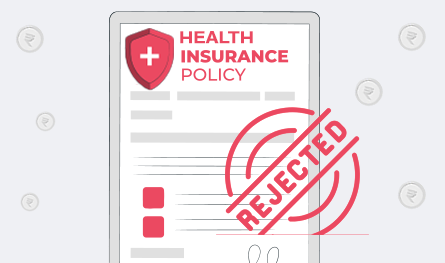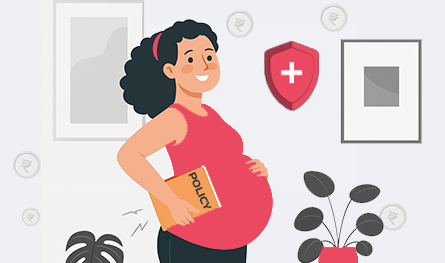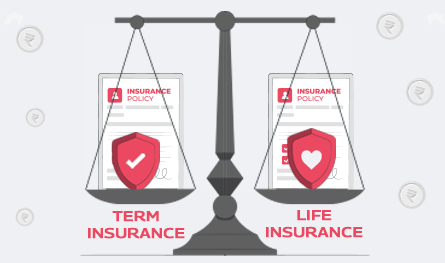Holiday Insurance Guide for Senior Citizens Travelling Abroad

Are you planning an international trip after retirement? Whether you are ticking off destinations from your bucket list or just planning to visit your extended family members across the globe, travelling after 60 is an adventure you deserve after years of providing for your family and dependents. But before you pack your suitcase and double-check your passport, there is one must-have that should be left behind - holiday insurance for senior citizens.
You may feel young at heart, but when you are flying overseas, especially at a more experienced age, you need proper coverage that matches your unique needs. You can think of it as your expert travel buddy that handles the unexpected, from misplaced luggage to medical emergencies. This article will be your guide to holiday insurance for people after 60 – why you need it, what to look for and common exclusions.

Why Holiday Insurance for Senior Citizens Is Necessary?
Let’s be real – your body is not getting younger, and international healthcare does not come cheap. If you have ever landed in a foreign country and had to navigate its healthcare system without help, you know how overwhelming it can be.
This kind of insurance policy helps cover the cost of emergency medical care if something goes wrong, whether it’s an unexpected illness or a minor injury. It also steps in when plans go awry, like if your flight is cancelled or your luggage does not make it to your destination. And if something serious happens that requires you to be brought home urgently, the policy ensures you are not left sorting out logistics in a panic. Simply put, holiday insurance ensures your adventures stay joyful and hassle-free.
What You Need to Look for in a Senior Holiday Insurance Plan
Not all insurance is made equal, especially when you're above 60. Here is a simple list of what you need to watch out for when shopping for holiday insurance for senior citizens:
1.Age Restrictions
You need to make sure your plan does not have strict age limits. Some insurers stop coverage at 70, while others go up to 99—provided your health records are in the clear. Always double-check.
2.Pre-Existing Medical Conditions
If you live with any pre-existing health conditions like hypertension or diabetes, be upfront about it. Some policies let you add coverage for these, while others might leave them out entirely. No one likes surprises at the claims desk.
3.Medical Evacuation & Repatriation
If you are venturing into remote places or countries with limited medical coverage, make sure your plan includes medical evacuation and repatriation. It is not something you think about until you need it, but it can be a real lifesaver.
4.Coverage Limit
Don’t forget the coverage amount. Some countries have sky-high medical costs. Your policy should be ready for worst-case scenarios, not just minor hiccups.
Duration and Frequency
Match your policy to your travel habits. Going on a single vacation? A one-time trip plan is perfect. Flying frequently? An annual multi-trip policy could save you time and money in the long run.
Common List of Exclusions
Nobody likes reading the fine print on insurance policies, but it is completely essential. Common exclusions in holiday insurance for senior citizens include:
- Travelling against medical advice
- Undeclared pre-existing conditions
- Participation in adventure sports
- Alcohol or drug-related incidents
Make sure to read the policy documents or ask the insurer directly to avoid surprises later.
How to Get the Most Out of a Holiday Insurance Policy
Holiday insurance for senior citizens does not always come cheap. Premiums vary based on your age, destination, trip duration, and health conditions, but you can always make the most out of your policy if you follow these simple tips:
- Get a Health Check-Up Before You Travel: Some insurance providers require a recent medical test. Even if they don’t, it's wise to have updated records. You can even get discounted premium rates if you prove to be healthy.
- Carry Emergency Contacts and Documents: Keep a hard copy and digital copy of your policy, medical records, and emergency contacts. This may come in handy in emergency medical cases.
- Choose a Reputable Insurer: Look for companies known for easy claims, especially ones with 24x7 global assistance. You can check your insurance provider’s claim settlement ratio to get an idea.
- Use Tech to Your Advantage: Many insurance companies now have apps to file claims on the go or access emergency help instantly. You need to make sure the app is installed and constantly updated to avoid unexpected surprises.
- Travel Smart: Avoid risky activities unless they're covered, and be mindful of your physical limits.

Author Bio
Paybima Team
Paybima is an Indian insurance aggregator on a mission to make insurance simple for people. Paybima is the Digital arm of the already established and trusted Mahindra Insurance Brokers Ltd., a reputed name in the insurance broking industry with 17 years of experience. Paybima promises you the easy-to-access online platform to buy insurance policies, and also extend their unrelented assistance with all your policy related queries and services.
Latest Post
.png)
In India, you have to get compulsory Personal Accident Cover for owner . However, whether you buy it with your car insurance or not is optional.


You finally did it. You filled out the forms, declared every ache and allergy, double-checked your documents, and hit submit. You even gave yourself a pat on the back. But just when you thought you were all set, the health insurance company says no. It stings, doesn’t it?
Before you start questioning your entire medical history or feel like you’ve failed some secret exam, please note that a rejection isn’t a dead end. It’s just a detour. In fact, it’s more common than you think. Insurers look at risk, numbers, and the fine print you probably didn’t enjoy reading. The good news? You’re not powerless here. If your health insurance proposal got turned down, this guide is your recovery plan. You’ll find out why it happened, what to do next, and how to get yourself back in the approval zone.


Let’s be honest. Health insurance terms sound like they were made up just to confuse you. You keep hearing about deductibles, copays, and premiums, and it all feels like financial gibberish.
But here’s the thing. These words are actually the keys to understanding how your health insurance plan really works. Once you crack the code, you will know exactly what you are paying for and what you will get in return. No more surprises at the hospital or blank stares during claim conversations. So, let’s dive deeper into the jargon and break it all down for you.


You've sorted the nursery. The list of baby names is getting longer and longer. And at 2:00 a.m., you're excitedly reading online reviews about a baby stroller. Well, that's how excited usually parents-to-be are. But amidst all the planning and excitement, here is the question that individuals may sometimes overlook: Will your health insurance cover all this?


Insurance decisions can be confusing. Especially, when you're staring at two plans that sound almost identical but do very different things. Term insurance promises high coverage at a low price, but no money back if you survive. Life insurance, on the other hand, may come with savings, returns, and bonuses, but it often comes at a higher cost.
So, which one should you pick? The one that protects your family? Or the one that also helps you save for the future? Let’s break it down in simple terms so you can choose the one that actually works for you.




